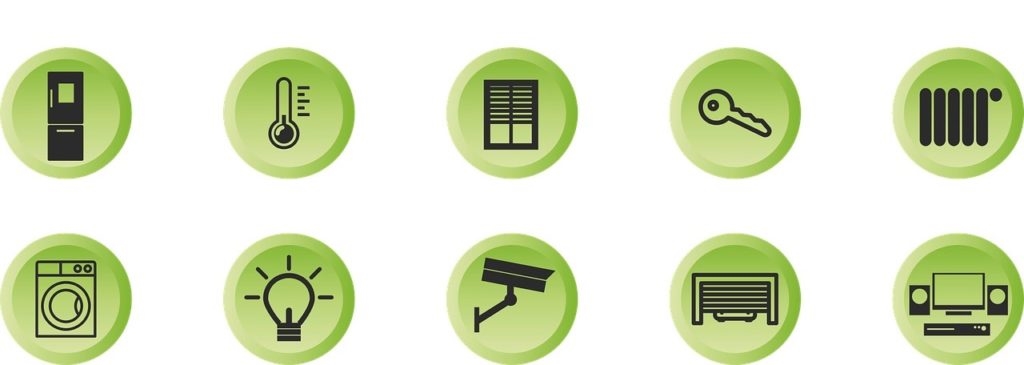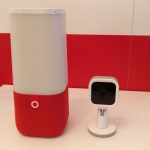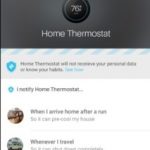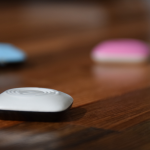Neura AI aims to make the connected home truly smart
Neura AI aims to make the connected home truly smart

You’re probably used to waking up to coffee, thanks to a pre-programmed machine. But what about an oven that offers breakfast options based on your health and recipes designed around your level of activity for the day? Or a thermostat that adjusts for the day’s weather and knows when you’re headed out? Or plumbing that alerts you to the exact location of a leak, or plugs that deliver electricity only when you need an item to work?
Today Neura is introducing an AI solution that makes all of this a reality – turning IoT environments into truly connected universes that allow companies to connect to their customers during the most meaningful moments. Neura enables consumers to take control of their smart home devices – from Amazon Echo, Nest thermostat, Hue Lights, Ring smart doorbell, refrigerators and more – and make their smart homes more intelligent with the integration of true AI. Their AI engine integrates with multiple data channels to provide situational awareness for individual customers, ensuring personalized, highly relevant engagement.
See also: Neura brings machine learning and security ethics to IoT
I spoke to Ori Shaashua, co-founder and VP of product at Neura to find out more. Neura’s originally started their focus on health data when co-founder and CTO Triinu Magi fell sick for five months with a difficult to diagnose illness and decided to record her own biometrics ( heart rate, blood pressure, glucose etc) and keep a food diary. It provided data that lead to a diagnosis of a rare form of diabetes. As Shaashua explained, “We ended up realizing there’s no single device that unites all of our data. It’s scattered in our smart phones, and in Bluetoothoth and wifi devices around us and today is serving no one.”
An advanced system in machine learning
In response, Neura created an advanced system of machine learning for the Internet of Things that can gather data on individuals from a range of connected devices, including phones, tablets, apps, and more. Neura’s AI engine integrates with more than 80 connected devices to ensure sophisticated situational awareness for each individual consumer and offers a library of API calls designed to provide customized, highly relevant engagement. Their AI recognizes and analyzes human behavior and develops what it calls a “digital identity” for individuals, creating insight that can be used to personalize applications, services, and devices.
“It’s an AI service that does not belong to any brand, device or product but means that products can adapt to who you are and what you do in order to serve you better. We challenge the data economy as it works on the web and we make all the devices aware of you, ” explained Shaashua.

AI in the smart home learns how each individual family member interacts with their connected, smart home devices. It transforms raw sensor data from the consumers’ phones and connected devices into a pattern of behavior that is meaningful to every individual in the household.
For example, AI-enabled IoT devices detect the moment when an individual is driving to the gym, waking up after six hours of sleep or working at the office, in home or offsite, and then builds a profile of how each individual in the household lives their life.
AI-enhanced products learn each individual consumer’s persona and habits, and then start to predict the experience that matches their specific needs at that given moment. For example, switching from a programmed or app-activated thermostat to an AI-enhanced thermostat will enable the thermostat to ‘know’ specific family members are on their way home, and to turn on the heat or air conditioning or when to adjust for the family heading to bed. AI-enhanced lighting knows not to turn on the lights if everyone has left the house, while an AI-enhanced lock knows all the household’s occupants are out of the house and have driven off to work, and then locks the doors in that specific moment.
According to Shaashua, “This is the first technology in the home is able to adapt to each and every human and this opens up a whole a whole new experience in the interface between persons and products. We have enabled products to become aware of each family member in the home environment. ”
Democratizing AI
In 2016, Neura’s development framework was released the open source to enable other developers to personalize and contextualize their products. To Shaashua this is part of democratizing AI:
“There has been a challenge for most companies to create meaningful AI because if you look at today’s market, AI belongs to Google and Facebook, they keep their AI very close to their hearts, they don’t open their API to enable other products even to try to utilize the knowledge they generate. We have democratized AI and made it more accessible so that the resources that are needed for one of our customers to introduce AI into their product is 2 hours of integration. We have even tiny, single developer companies working with our Neura AI engine, doing great work like tackling fertility and changing lives.”
Connected products will be forced to improve.
What Neura will provide is a competitive advantage in highly competitive smart home markets such as home security and heating, where vendors with products that are truly responsive to the needs of customers will succeed. Shaashua recalled:
“I knew nest when they were 10 engineers, 10 geeks in a garage. and they took to home automation and they created a smart thermostat. It made Honeywell create better. Nest meant Honeywell had to care about home automation.”
Connected devices are becoming omnipresent in every nook of the home – home intelligence, energy efficiency, entertainment, wellness, access control, home safety, home comfort, daily tasks, and connectivity. We’ve waited a long time for our connected devices to become smart and able to communicate with each other, and it looks like, with Neura, the time has come.
The post Neura AI aims to make the connected home truly smart appeared first on ReadWrite.
(25)












